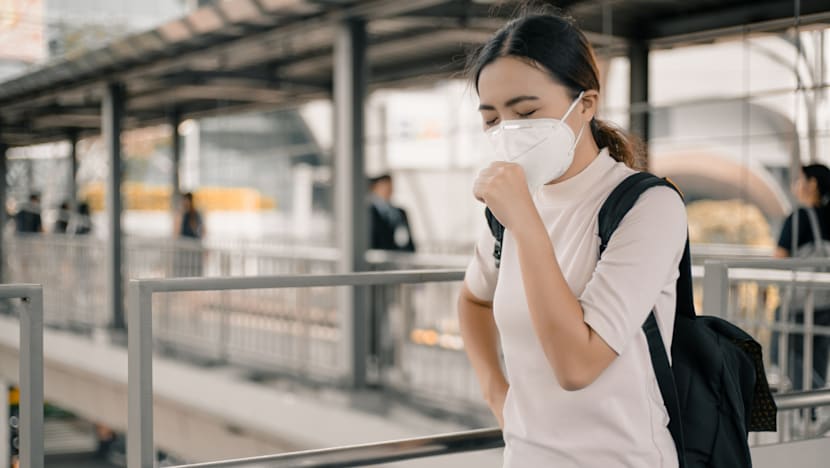Singapore sees early seasonal uptick in flu cases, surge expected to ease by year-end
Infections have risen sharply since August, months ahead of the usual December to March flu season.


This audio is generated by an AI tool.
SINGAPORE: Singapore is experiencing an early surge in influenza cases, months ahead of the typical December to March flu season.
According to data from the Communicable Diseases Agency (CDA), the number of patients testing positive for influenza has risen sharply since the last week of August.
About 30 per cent of samples tested during the week of Aug 24-30 were positive for influenza-like illnesses, peaking at 40 per cent by late September.
CDA data also shows that this year’s influenza peak is about 20 percentage points higher than the same period last year.
The health authority said that it has observed an uptick in seasonal influenza infections in Singapore since mid-August, which has remained elevated to date.
The predominant circulating strain is H3N2, a subtype of Influenza A, and a common cause of seasonal flu.
CLINICS REPORT HIGHER PATIENT LOADS
Some doctors have seen more flu-related visits in recent weeks.
Dr Lim Kim Show, medical director at Life Family Clinic, said his clinic has recently experienced a 10 per cent to 12 per cent rise in patients testing positive for influenza.
Most patients presented with fever and upper airway symptoms, but their coughs were not very severe, Dr Lim told CNA. He added that they tended to respond well to antiviral treatment such as Tamiflu.
Dr Lim noted that the current spike is “off-season” for Singapore, where flu activity usually increases between late November and mid-January, coinciding with the Northern Hemisphere’s winter months and heavier travel patterns.
He added that many recent cases involve young adults returning from overseas, with transmission sometimes spreading to family members at home.
REGIONAL RISE
Singapore’s uptick mirrors a broader regional pattern, doctors say.
Japan officially entered its influenza season five weeks earlier than usual, the country’s health ministry reportedly announced on Oct 3. Experts there attributed the early onset to the record number of tourists visiting the country.
Apart from travel, experts added that the early surge could also be due to factors such as climate change and limited prior exposure to the H3N2 strain. Individuals without previous contact with this strain are more susceptible because their immune systems have not developed the specific antibodies needed to combat the virus effectively.
According to the CDA, the strain is also driving a recent increase in cases in Malaysia, where about 6,000 students were infected and some schools were closed for safety.
NOT A PANDEMIC STRAIN
Despite early infections here, experts say Singapore is not experiencing a pandemic strain, and the country’s healthcare system is well-prepared to manage the situation.
Associate Professor Lim Poh Lian, group director of communicable diseases programmes at the CDA, said there is no indication locally or regionally to suggest that infections are more severe than usual, adding that the agency will continue to monitor the situation closely.
"We do have a few surveillance measures that are built into the woodwork of the primary healthcare system to make sure this thing doesn't spread to greater proportions,” said Dr Loh Jiashen, an infectious diseases specialist at Farrer Park Hospital.
“And as a new wave of influenza sweeps through the population, more and more people will get immune and the outbreak will eventually die off.”
While hospitals have seen a higher patient load, Dr Loh noted that mortality rates have not increased.
He added that the current surge is expected to subside by the end of the year, with the influenza window likely to close earlier than usual, before March.
TAKE PRECAUTIONS
The CDA has reminded the public, especially those who are medically vulnerable such as seniors and individuals with chronic medical conditions, to stay up to date with flu vaccinations and practise good personal hygiene, particularly when travelling.
Those with mild respiratory symptoms should stay home until their symptoms resolve. Those who must go out while symptomatic should wear a mask, avoid crowded areas and limit contact with medically vulnerable individuals.
The CDA added that people with severe, prolonged or worsening symptoms should see a doctor.


















